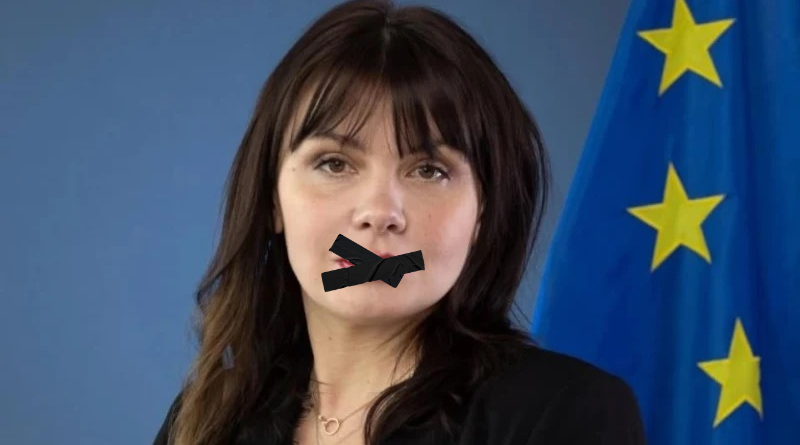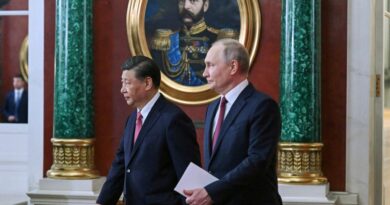Bulgaria’s Anti-Corruption Illusion
The Collapse of the European Prosecutor Myth
For more than a decade, many Bulgarians placed their last hopes for justice not in their own institutions, long captured by oligarchic interests, but in Europe. The creation of the European Public Prosecutor’s Office (EPPO) under Laura Kövesi seemed to promise an external check on entrenched corruption and impunity. In the public imagination, if Bulgaria’s judiciary had become an extension of the mafia, at least European prosecutors would remain the final barrier.
Instead of confronting the system, the European Public Prosecutor’s Office has turned on one of its own. Teodora Georgieva, the Bulgarian prosecutor who sought to indict a high-profile member of the country’s elite—Vladimir Malinov, head of the state gas operator Bulgartransgaz—for misusing EU funds in the expansion of the Chiren gas storage facility, now finds herself under investigation. Officially, the EPPO has presented this as an effort to “clean house” and remove compromised figures. Yet the underlying message is unmistakable: those who challenge the system risk becoming its next target. Few believe that Georgieva’s successor will be chosen through a process any more transparent or independent.
Support Independent Analysis
Help us keep delivering free, unbiased, and in-depth insights by supporting our work. Your donation ensures we stay independent, transparent, and accessible to all. Join us in preserving thoughtful analysis—donate today!
A Familiar Script
The sequence of events followed a well-worn playbook. First, Malinov was quietly warned by the Ministry of Interior, allowing time to dispose of potentially incriminating evidence. Then, Bulgaria’s national prosecution service openly boycotted the EPPO investigation, blocking the indictment. Finally, a long-prepared dossier of kompromat was deployed against Georgieva, shifting attention from the accused to the accuser.
Such tactics are not new. In Bulgaria, kompromat is the currency of political survival—an insurance policy for elites and a barrier against outsiders. To gain or hold office is to accept the risk that compromising material may one day be used. In this case, the kompromat served its intended purpose: the accused official was shielded, and the prosecutor was discredited.
From Guardian to Façade
The broader consequence is clear. The EPPO, once seen as a potential counterweight to Bulgaria’s state capture, now risks becoming another façade. There will still be impressive country offices, official cars, and statistics of minor prosecutions. But when it comes to cases that strike at the heart of high-level corruption, the EPPO appears unwilling—or unable—to deliver.
The implications extend beyond Bulgaria. The discrediting of Georgieva risks alienating not only long-standing euroskeptics but also pro-European civil society groups and reformers who have fought for accountability. For them, the EPPO’s actions signal that Brussels values smooth relations with national elites more than the principles of rule of law.
A Systemic Breakdown
This episode should not be viewed in isolation. It is part of a wider pattern in which mayors, magistrates, journalists, and civic activists who dare to challenge entrenched interests are met with pressure, prosecution, or marginalization. The disciplining of one of Bulgaria’s own European prosecutors fits seamlessly into this chain. The paradox could not be sharper: the prosecutor is punished, while the wrongdoer is shielded.
The parallel to Bulgaria’s nineteenth-century April Uprising is imperfect, yet instructive. Then, as now, the prospect of immediate success seemed remote. But the uprising was essential as a moral and political act—to expose the systemic nature of oppression. The lesson for today is similar: Bulgaria’s crisis is not about “isolated judicial deficiencies” but about the institutionalization of impunity at the highest levels of power.
The End of Outsourced Hope
For years, many Bulgarians placed their hopes in Europe, believing it would rescue them from their own corrupt elites. That faith is now fading. The Kövesi myth—that an external guardian could enforce accountability where domestic institutions had failed—has collided with the hard limits of political reality. Europe, preoccupied with its own crises, shows little appetite to confront entrenched national power networks.
The harsh truth is that if Bulgaria is to confront its mafia state, the impetus will not come from Brussels. It must come from Bulgarians themselves.
Ilian Vassilev




